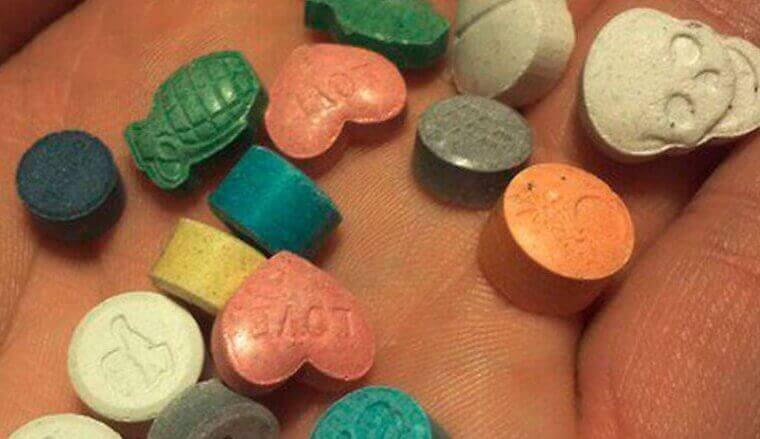Discover the History of Ecstasy
Ecstasy is a psychoactive drug known as the love drug. Chemically it is represented as 3,4-methylenedioxymethamphetamine and abbreviated MDMA. It was produced by a pharmaceutical company in 1914 with the aim of being an appetite suppressant, but it was never used for that purpose. It was later used by psychotherapists to lift the spirits of patients in the 1960s; and in the 70's it started to be consumed for fun, spreading among university students.
The use of this drug is prohibited in several countries, including Brazil. Its consumption is through intravenous injection or oral tablet. Its effects last approximately eight hours, varying according to the individual's organism. Among them are: increased alertness, greater sexual interest, sense of well-being, great physical and mental capacity, euphoria and increased socialization and extroversion.
What are the effects of using Ecstasy?
There are some unwanted effects after using the drug, such as increased muscle tension and motor activity, increased body temperature, stiffness and pain in the muscles of the lower limbs and lumbar spine, headaches, nausea, loss of appetite, blurred vision, dry mouth, insomnia, wide fluctuations in blood pressure, hallucinations, agitation, anxiety, panic attacks and brief episodes of psychosis. Increasing alertness can lead to hyperactivity and flight of ideas. In the days after using the drug, the user may become depressed, with difficulty concentrating, anxious and fatigued.
Long-term use causes many health risks and damage. Studies indicate that the user of this drug has a loss of serotonergic activity, which leads the user to present mental and behavioral disorders, such as memory difficulties, both verbal and visual, difficulty in making decisions, panic attacks, deep depression, paranoia, hallucinations, depersonalization , impulsivity, loss of self-control and sudden death from cardiovascular collapse.
What does Ecstasy do to the user?
In addition, it can cause damage to the liver, such as an increase in size, with a tendency to bleed. Depending on the degree of toxicity, it can progress to fulminant hepatitis, causing death if there is no transplant. The heart also suffers with the use of the drug, with an acceleration of heart rhythms and an increase in blood pressure, which can lead to the rupture of some blood vessels, causing bleeding.
There are no studies that prove physical dependence on ecstasy, but there are no studies that indicate the opposite.

